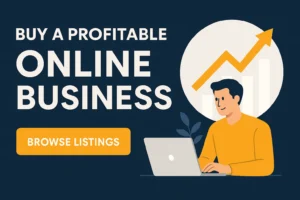Table of Contents
ToggleIf you’ve been working hard to grow your website and have invested a lot of valuable resources in it, nothing feels worse than seeing your rankings suddenly drop.
We have seen many individual bloggers, as well as small business owners, spend months writing high-quality content, optimizing on-page elements, and building high-authority links, but one mistake or the slightest negligence can ruin all their efforts.
As the title of our blog already hints at, we’re talking about plagiarism.
It is important to understand that search engines have become smarter than ever, and if your content is copied or if someone is copying your content, you risk facing seo penalties, and the biggest one, no doubt, is losing your rankings.
In this blog, we’ll break down what plagiarism is in the seo world and how it affects your website rankings. Not just this, we’re also going to tell you what you can do to protect your content.
So without any delay, let’s get down to the details…
What is Plagiarism in SEO?
When you hear the term plagiarism, the first thing that might come to your mind is academic cheating, but what you don’t know is that the act of plagiarism isn’t just limited to the academic world; it also ruins professional reputation and, in the worst-case scenario, careers.
Plagiarism in the seo world happens when someone copies content from another website without giving proper credit or paraphrasing it in different words.
In seo, plagiarism doesn’t just refer to verbatim copying; you can also get accused of the following reasons:
- If your content is heavily paraphrased from another website, but is still very similar.
- Multiple pages on your own website host the same content (textual & visual).
- You have used scraped content from other sources.
Google and all other search engines are focused on giving the best results to their users, and if your content looks like a duplicate version of something that already exists, it is going to signal that your site is not trustworthy, and from this point, you’re going to keep sinking in the search results.
Why Do Search Engines Care So Much About Plagiarism?
Search engines want to provide valuable, relevant, and unique content to users, and so they would always put websites on top that have something unique to offer.
Imagine if you’re searching for something and find ten websites with the same text. That wouldn’t be very helpful, would it?
This is the core reason why Google and all other search engines rank unique content higher. Duplicate content confuses the ranking algorithms of search engines about which site should rank higher, and so instead of digging deep, it simply puts similar content down.
Because of plagiarism, you can face issues like:
- Lower rankings or deindexing
- Getting your pages flagged as spam
- Loss of authority in your niche
In simple words, plagiarism signals to search engines that your website isn’t valuable, and if you’re not adding value, you are never going to make it to the top.
Understanding How Plagiarism Destroys Your SEO Rankings!
Let’s dig deeper and understand the direct effects plagiarism has on your seo efforts:
- Duplicate Content Penalties
When Google finds duplicate content, it wouldn’t punish you right away; instead, it would first try to figure out the original version.
If your content isn’t original, your page will simply be ignored, but even if you are the source, you are not off the hook. The search engine would eventually pull your entire site down in rankings, which is why seo experts always emphasize regular audits and updates.
- Loss of Organic Traffic
Once you lose your ranking position, the flow of traffic will obviously drop.
Even if you have invested a lot in designing, backlinks, and marketing, plagiarized content would keep pulling your website down.
Once you lose traffic, your website would be of no value to you, and all your efforts would go to waste.
- Damaged Domain Authority
Plagiarism can badly hurt your domain authority.
Websites that have a low domain authority score would always struggle to rank for competitive keywords.
Moreover, if you lose your domain authority, you wouldn’t be able to build quality backlinks, which is another big blow.
Once your authority is damaged, it can sometimes take months and even years to bounce back.
- Manual Actions from Google
In severe and repeated cases, Google can issue a manual action against your website.
This means that someone from Google’s team has reviewed your website and decided to penalize it for plagiarism. Manual actions are quite tough, and it can be hard to recover from them as they often lead to deindexing.
Once your website is removed permanently from search results, there’s no going back.
- Harm to Your Reputation
Plagiarism doesn’t just kill your efforts; it hurts your credibility.
Visitors who land on your website and find duplicate content are less likely to trust your brand ever again or buy from you.
So simple negligence can destroy the goodwill of your brand.
Common Mistakes That Lead to Plagiarism
You must understand that plagiarism isn’t always intentional. There is always a chance that your content can be similar to another site working on the same niche or products.
Here are a few mistakes that you, as a website owner, should avoid to prevent plagiarism:
- Copying product details or descriptions from manufacturers without paraphrasing.
- Quoting too much text from other websites without presenting your own value.
- Publishing guest posts on your website without checking them for originality.
- Not checking your website content regularly for duplicate pages.
Even unintentional plagiarism can damage your rankings, which is why it is important to check every piece of content before publishing.
How to Avoid SEO Penalties from Plagiarism?
Lucky for you, today you have access to online plagiarism checker tools that can help you catch duplication before it hurts your website.
But finding plagiarism isn’t always enough.
Here are some practical steps that you can take to avoid plagiarism penalties:
- Always Create Original Content
Well, this is a very obvious tip, but it is sometimes important to state the obvious. It is important to focus on research and ideation.
This way, you can write from your own knowledge and research findings. Even if you are relying on existing ideas and information, you can ensure that your final draft offers something unique; specifically, your perspective.
- Use Plagiarism Checkers Regularly
Before publishing content on your website, it is best to run it through a plagiarism checker. This ensures that your writing is 100% original.
In case you find excessive similarities, you can always use an AI plagiarism remover tool to eliminate duplicates and make your writing clean.
- Always Give Credits Where Due
If you must include a quote or reference, always give credit. Proper citation not only protects you but also builds trust with readers.
Today, you have access to AI tools that can help you add citations and references.
- Keep Updating Old Content
There is always a chance that someone might be posting a rewritten version of your content.
Sometimes, older content on your site can resemble new articles being posted online, so it is important to refresh your content.
You can do so by changing the wording, adding new information, fresh data, or real-time examples.
- Don’t Overrely on AI Tools
Many of you might think that by using AI generative tools, you can get original content, but it is not true.
AI-generated content is a mix of text you get from different sources. It is always important to verify this content and, most importantly, humanize it so it sounds not just unique but authentic.
How to Recover from Plagiarism Penalties?
If your site has already been affected by plagiarism, you must not panic. Here are some quick steps to follow for recovery:
- First, most use tools like Google Search Console or plagiarism checkers to find content that matches yours. If they’re copying from you, you can send them a notice to remove your content. If they don’t comply, you can register a complaint.
- Once plagiarism is detected, it is important to immediately remove plagiarized pages or reword duplicate content in your own unique style.
- If you have received a manual penalty, you can request reconsideration after making necessary amends and improvements.
- You must always focus on creating fresh and valuable content that engages your audience and helps you build trust with search engines.
Recovery wouldn’t be instant, so be patient when putting in efforts.
Conclusion
Plagiarism, for most of you, might seem like a shortcut, but in reality, it is a dead end for your efforts. In 2026, search engines expect and want originality from you, and so do your readers, which is why it is important to ensure originality.
In this guide, we have discussed in detail seo penalties and how plagiarism can result in damaged rankings, loss of traffic, and compromised credibility. We hope that now you understand that the best way to protect your website and keep it at the top is to create original and helpful content.
Today, ensuring originality has become much easier than it was in the past, which is why we would suggest that you leverage tools like plagiarism checkers and plagiarism removers. These would help you save your resources and stay ahead in the competitive seo world!






